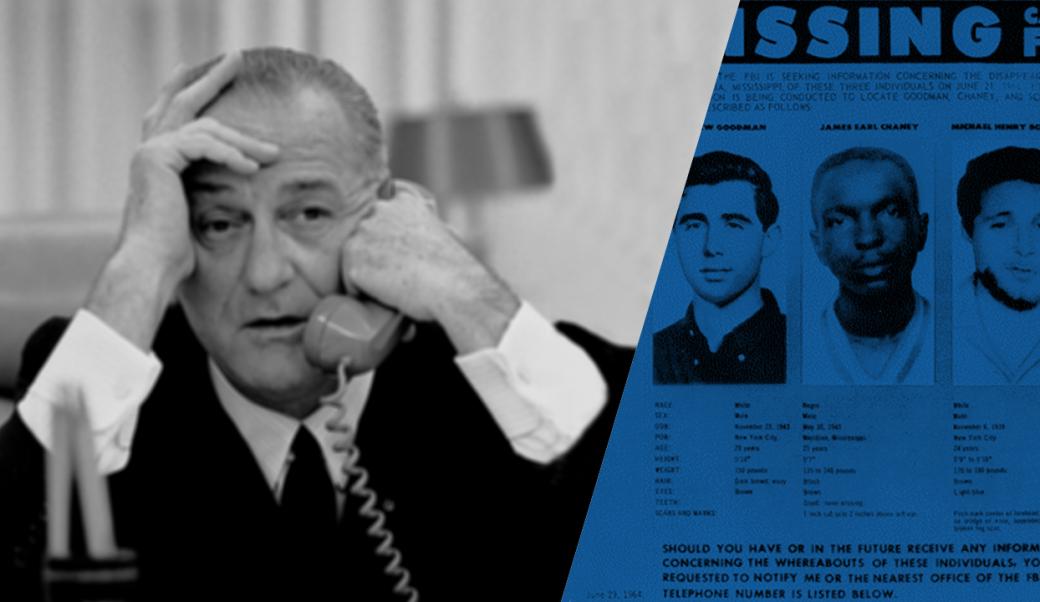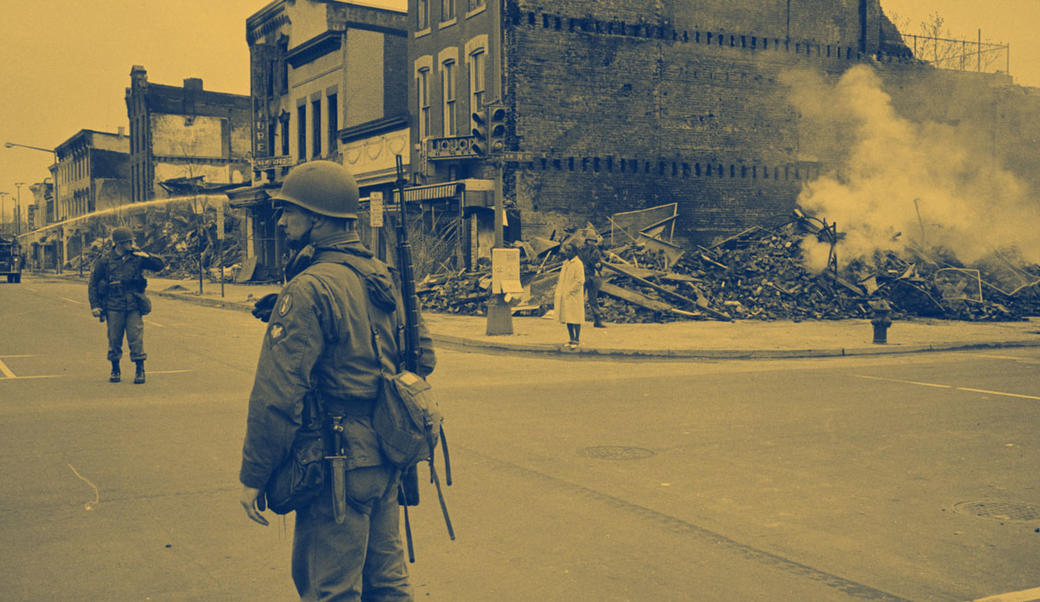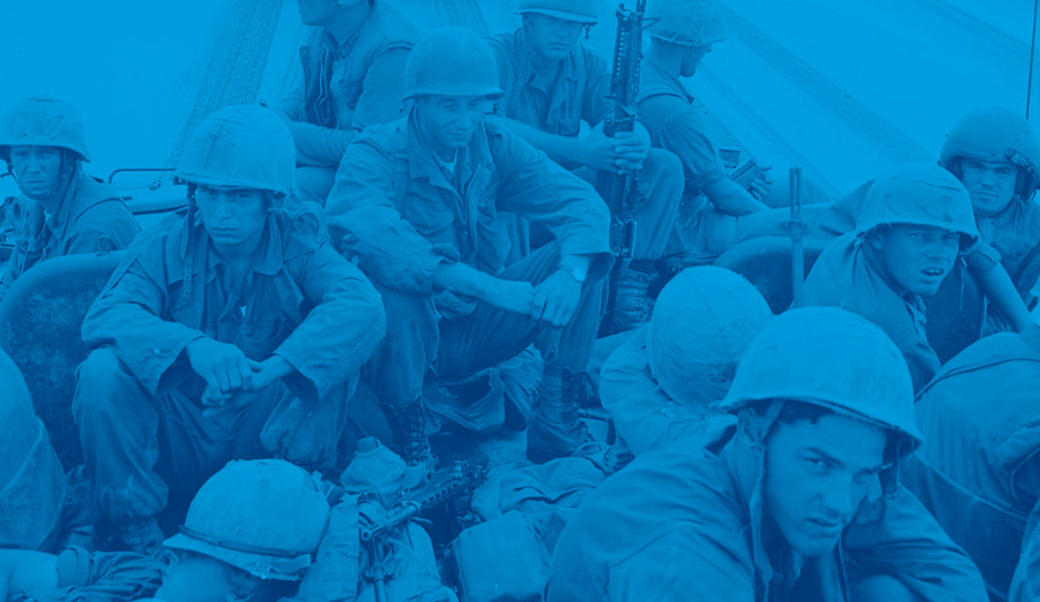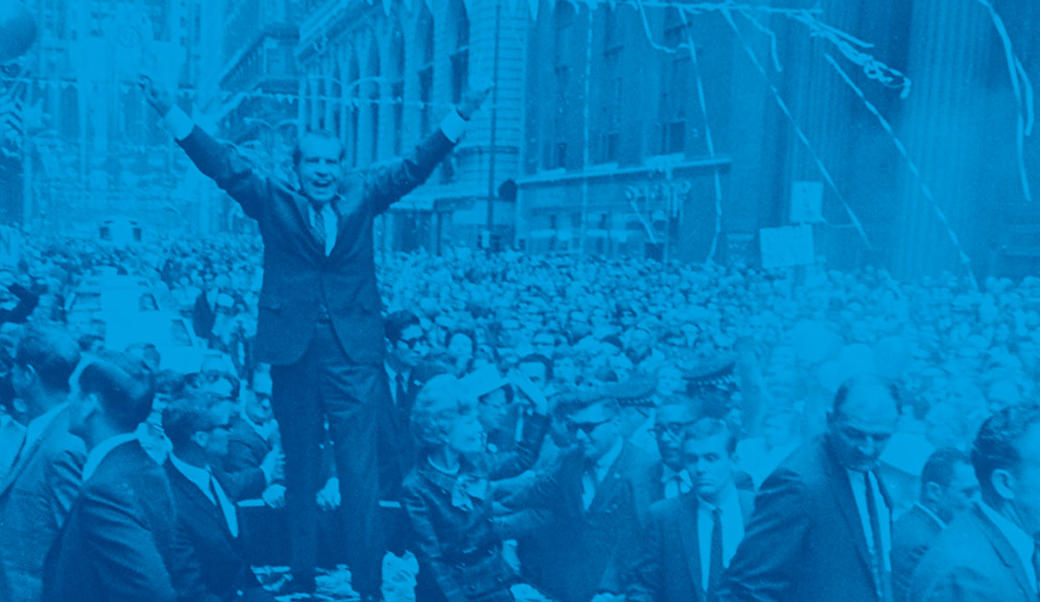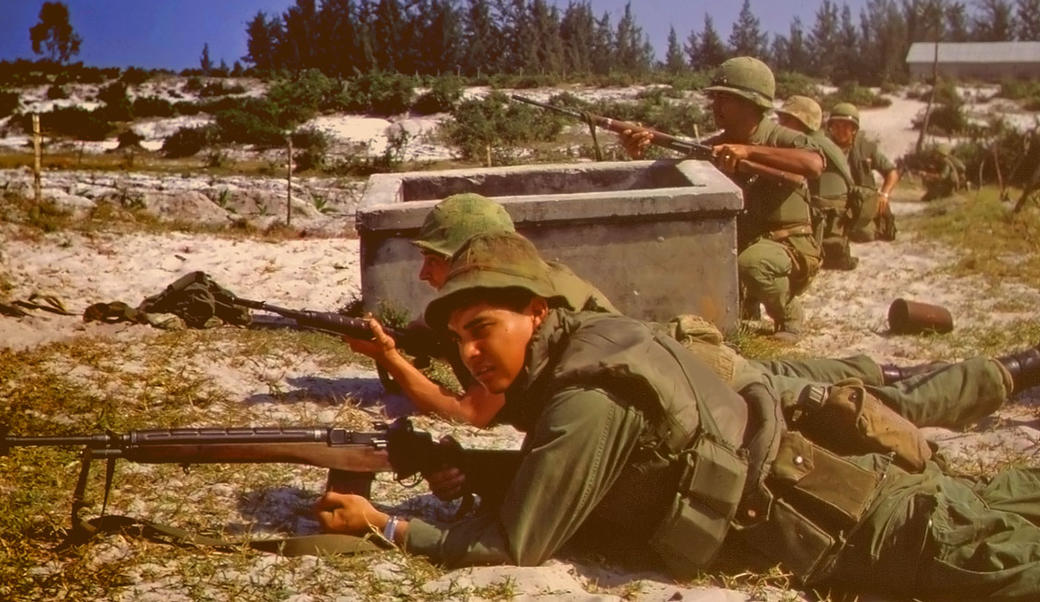Lyndon B. Johnson: Life in Brief
On November 22, 1963, John F. Kennedy was shot and killed in Dallas, Texas. The event thrust Lyndon Johnson into the presidency. A man widely considered to be one of the most expert and brilliant politicians of his time, Johnson would leave office a little more than five years later as one of the least popular Presidents in American history. The man who had risen from the poor Hill Country of Texas to become the acknowledged leader of the United States Senate and occupant of the Oval Office would return to Texas demoralized and discredited. He died four years later, a few hundred feet from the place of his birth.
As a man, Lyndon Johnson was obsessed with his place in history, consumed by a voracious appetite for life, and often cast between emotional extremes. He was a natural politician, and to many people who knew him, he seemed larger than life. As a President, Johnson revealed that he was even more complex and ambitious, unveiling a sweeping collection of legislative and social initiatives he called "The Great Society." Elected in his own right by a landslide victory in 1964, he seemed unsinkable but soon floundered amid the Vietnam War. Vietnam—perhaps the most divisive event in American life since the Civil War—polarized the country and transformed political, strategic, and moral debates. President Johnson was unable to devise a strategy for victory, withdrawal, or peace with honor. In 1968, facing strong opposition to his renomination, Johnson declined to seek a second term. He left to his successor the problems of Vietnam, racial unrest, and unresolved issues of income inequality and erratic economic performance.
Education and Marriage
The Johnson family had been in Texas for generations. Farmers and ranchers, they had helped to tame the state and had fought for the Confederacy in the Civil War. Lyndon's father had the gregarious gifts of a politician, and three years before Lyndon's birth, at the age of twenty-seven, he began serving as a Texas state representative. The elder Johnson, however, was less fortunate as a farmer and businessman. During Lyndon's early teenage years, his father piled up enormous debts, lost the family farm, and spiraled into financial crisis that rarely relented the rest of his life. The experience affected Lyndon throughout his own life and likely contributed to his commitment to improving the lot of the poor.
He did badly in school and was refused admission to college. After a brief period of doing odd jobs and getting into trouble, Johnson managed to enter Southwest Texas State Teachers College in 1927. He taught briefly, with a stint at a poor school in Cotulla, Texas, but his political ambitions had already taken shape. In 1931, he won an appointment as an aide to a congressman and left the teaching profession. The experience was electrifying: he had found his natural environment. He would not return to Texas full-time until 1969.
In 1934, he met Claudia Alta Taylor, "Lady Bird," and the two were married three months later. She was a perfect balance for him: charming and refined where he was raw and boisterous. She also had family money, which the Johnsons would eventually use to build a broadcasting and real estate empire.
Fast Political Track
In 1937, Johnson resigned as the state director of the National Youth Administration and won election to Congress, representing his home district as an ally of President Franklin Delano Roosevelt. He was just twenty-eight years old.
He was an activist congressman, bringing electricity and other improvements to his district, but in 1941, he lost his first bid for the U.S. Senate, being defeated in an expensive and controversial election by W. Lee "Pass the Biscuits, Pappy" O'Daniel. Johnson remained in the House, and after the bombing of Pearl Harbor, President Roosevelt helped him win a commission in the Naval Reserve.
On a tour of the southern Pacific, he flew one combat mission, and it provided an ironic moment in presidential history. Before takeoff, he left one B-26 bomber, the Wabash Cannonball, to use the restroom and on his return, boarded another plane, the Heckling Hare. During the bombing mission, the Heckling Hare was forced to run back to base, while the Wabash Cannonball crashed into the sea, killing all on board. Johnson received the prestigious Silver Star for his participation. Later, when President Roosevelt insisted that members of Congress leave active service, Johnson returned to his duties in Washington. In 1948, he was finally elected to the Senate by winning the controversial Democratic primary by 87 votes. Embittered by alleged instances of voter fraud, his opponents thereafter derisively referred to him as "Landslide Lyndon."Once in the Senate, Johnson advanced rapidly. Within two years, he was the Democratic whip; then, when the Republicans won a majority in the Senate on President Eisenhower's coattails, he became minority leader. In 1955, he was elected majority leader and transformed the position into one of the most powerful posts in American government. He worked ceaselessly and is perhaps best known for passage of the watered-down Civil Rights Act of 1957, the first such measure in almost a century. He also pushed for America's entry into what would become known as the Space Race. By 1960—after two failed attempts at the vice presidential nomination—he set his sights on the White House.
JFK and LBJ
That year, however, belonged to John Fitzgerald Kennedy. Young, handsome, rich, and witty, the Senator from Massachusetts piled up one primary win after another. Despite Johnson's announcement of his own candidacy, Kennedy was nominated on the first ballot at the Democratic convention in Los Angeles. Facing a seasoned Republican contender in Vice President Richard Nixon, Kennedy turned to Johnson to bring political and geographical balance to the ticket. Johnson delivered the South—including several states that had voted Republican during the Eisenhower years—and the team of JFK and LBJ won the election by the smallest popular margin of the century.
Although Johnson never seemed comfortable in the vice presidency, he headed the space program, oversaw a nuclear test ban treaty, and worked toward equal opportunity for members of racial minorities. He also publicly supported the young President's decision to send American military advisers to the Southeast Asian country of Vietnam, whose corrupt but friendly government was threatened by a Communist insurgency. Johnson was not, however, in Kennedy's inner circle and seemed frustrated by his lack of influence, particularly on legislative matters.
Legislative and World Impact
Johnson was only two cars behind Kennedy on the day the President was shot to death in Dallas. He was sworn in as President aboard Air Force One later that afternoon. A few days later, he spoke to a joint session of Congress. Seizing on Kennedy's inaugural plea to "let us begin anew," he asked Congress to "let us continue." Over the next year, he endorsed the late President's programs even as he announced his own. He pushed for passage of Kennedy's tax cut and civil rights bill and declared a "War on Poverty." When he ran for election against the Republican conservative Barry Goldwater in late 1964, he won by the biggest popular vote margin in history. During his presidency, Johnson engineered the passage of the Medicare program, poured money into education and reconstruction of the cities, and pushed through three civil rights bills that outlawed discrimination against minorities in the areas of accommodations in interstate commerce, voting, and housing.
But in the meantime, the conflict in Vietnam was intensifying. By 1965, the American "advisers" were a thing of the past as Johnson began an escalation of American commitment to more than 100,000 combat troops. Within three years, the number would swell to more than 500,000. As American casualties increased, an antiwar movement gathered momentum. The North Vietnamese and the National Liberation Front kept winning, even as Johnson poured more money, firepower, and men into the war effort. Ultimately, the President came to be identified personally with a war that seemed unwinnable. As a result, his popularity sagged drastically, dipping below 30 percent in approval ratings. Senator Eugene McCarthy, a Minnesota Democrat, announced that he would seek the Democratic nomination and did surprisingly well in the New Hampshire primary. President Kennedy's younger brother Robert also joined the race. On March 31, 1968, Johnson announced that he would neither seek nor accept the nomination. After a relatively short period in restless retirement, Lyndon Johnson died on January 22, 1973. His grave lies in a stand of live oaks along the Pedernales River at the LBJ Ranch.
